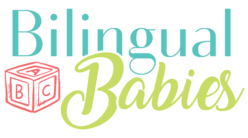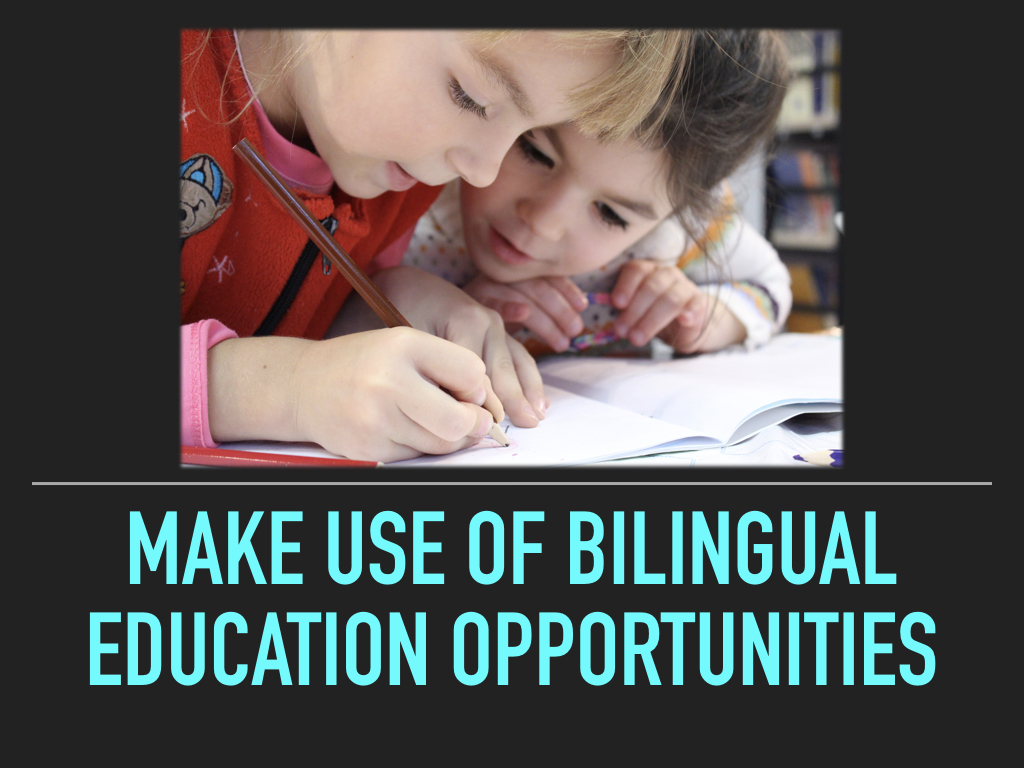Deciding where to send your child to school is a huge decision. Our children’s education is one of the most important things we will have to consider—in particular if we want to promote the minority language and help them to also become biliterate. For a bilingual child, learning in a bilingual kindergarten or school can reinforce their languages. If a child can speak only one language, a bilingual education can still be beneficial insofar as it helps them to acquire an additional language in a short amount of time. A formal education context may also help when it comes to developing a child’s literacy skills—something that we, unless we homeschool, can only provide to a certain extent at home as parents and caregivers.
Bilingual education opportunities come in a variety of forms. They range from individual classes to full everyday immersion programs. For example, for German here in New Jersey, there are a number of German language schools that offer classes on Saturday mornings. At the other end of the spectrum, are schools like the German International School New York that offer full Pre K-12 bilingual schooling, including dual degrees so children graduate with a high school diploma as well as the regular German international Abitur.
But what is the best way to go?
Well, there is no one-size-fits-all solution. It strongly depends on your individual family situation, including what is available in the area where you live. In other words, it’s important to choose a language-based program that suits your family’s needs. Here are some questions to consider:
-
- What type of school with what language focus is available in the area where you live?
-
- What age do you want your child to get started?
-
- What type of school works for your and your child’s needs? A regular school that offers a full K-12 bilingual curriculum or a language school that offers classes once a week?
-
- If you are a family with additive bilingualism (neither parent is a speaker of the additional language), which language should you choose to reap the benefits that bilingualism provides? For example, it may make sense to choose a language to which you can expose your child outside of class as well.
-
- If you choose a bilingual program and you are not a speaker of the additional language, do you have the option to get a tutor who can potentially help with homework?
Overall, reflecting on questions such as these may be helpful in making this important decision.
Our decision and experience
In our case, we made the decision to enroll Ella when she was six months old (now she is 2.7). We have a German language school in our area—the German language school of Morris County—that offers classes on Saturday mornings. They offer a class called Musikgarten, a mommy and me class for children up to 3.5 years. The class is 45 min long and all about songs and play. So it’s a very natural and fun approach to language learning. We enrolled Ella to give her additional exposure to German outside of our home and connect with other speakers of German.
However, there was another reason to start her early: the hope of counterbalancing potential motivational issues down the line. Parents of older bilingual children often report that they struggle to keep up their children’s motivation to attend language classes. Especially when children or teenagers get involved in sports or other leisure time activities, language learning takes a back seat. A potential way to keep motivation up is through friends–other little language buddies. We hope that Ella will make friends with other kids at German school who later on become her classmates when the classes become more like formal instruction. That way, it’ll hopefully not just be about attending German school in order to learn the language but also a matter of seeing friends.
So far she enjoys the Musikgarten class and is eager to go every Saturday. However, whether our strategy—to keep up her motivation via friends and peers—will play out once other hobbies set in is something that only time will tell. I will keep you posted! Regardless, we felt that it was worth a shot! So far we have not regretted our decision. In fact, we have been seeing a tremendous impact that the German classes have on Ella’s ability to speak German—even at this young age.

